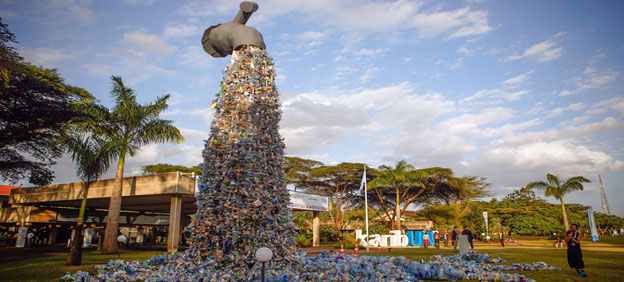
Civil Society, Crime & Justice, Gender, Global, Headlines, Human Rights, LGBTQ, TerraViva United Nations

Melissa Fleming, Under-Secretary-General for Global Communications, addresses the United Nations Holocaust Memorial Ceremony: Holocaust Remembrance for Dignity and Human Rights in observance of the International Day of Commemoration in memory of the victims of the Holocaust. Credit: UN Photo/Manuel Elías
– The United Nations (UN) held the annual Holocaust Memorial Ceremony on January 27 with the theme “Holocaust Remembrance for Dignity and Human Rights”. This year – 2025 – marks the 80 year anniversary of the end of World War II and the liberation of Nazi concentration camps that resulted in the deaths of over 6 million Jews. This event included testimonies from Holocaust survivors, underscoring the importance of understanding and remembrance. With Holocaust denial and attacks on Jews on the rise, it is important to take meaningful steps as a society to combat racism and antisemitism.
The opening remarks at this ceremony was delivered by UN Secretary-General Antonio Guterres, in which he emphasized the vast scale of minorities who were targeted by the Nazi party as well as the UN’s commitment to remember and honor these victims.
“Every year on this day, we come together to mark the liberation of Auschwitz-Birkenau. We mourn the six million Jews murdered by the Nazis and their collaborators as they sought to destroy an entire people. We grieve the Romani Sintis, people with disabilities, LGBTQIA+ people, and all those enslaved, persecuted, tortured, and killed. We stand alongside victims, survivors, and their families. And we renew our resolve to never forget the atrocities that so outraged the conscience of humankind,” said Guterres.
Guterres went on to elaborate on the importance of remembrance. Although survivors of the Holocaust have continued to share their stories, it is a societal responsibility to fight for justice. “Remembrance is not only a moral act , remembrance is a call to action. To allow the Holocaust to fade from memory would dishonor the past and betray the future,” he said.
The UN Deputy Representative for the United States Dorothy Shea also spoke at this conference, underscoring that Holocaust remembrance is especially important as of today with antisemitism on the rise again, especially among younger generations. “Holocaust denial and distortion are also on the rise. They are a form of antisemitism and are often coupled with xenophobia. History shows, as hatred directed at Jews rises, violence and attacks on the foundations of democracy are not far behind…The data also highlights a troubling increase in antisemitic attitudes among younger demographics, with significant implications for future societal dynamics,” she said.
On January 14, the Anti Defamation League (ADL) released the Global 100 Survey, a study that analyzes trends of antisemitic beliefs around the world. The survey studied around 58,000 people in 103 countries to represent the 94 percent of the entire adult population. It found that approximately 46 percent of adults worldwide harbor some form of antisemitic beliefs, equal to roughly 2.2 billion people. These numbers are nearly double the amount recorded in ADL’s 2014 survey and mark the highest level on record since the beginning of ADL’s surveys.
Additionally, the survey found that approximately 20 percent of the studied population had not heard about the Holocaust. Roughly 48 percent believe in the Holocaust’s historical accuracy, with this percentage being even lower, at an alarming 39 percent among 18-34 year olds. Furthermore, 50 percent of respondents younger than 35 years of age reported elevated levels of antisemitic beliefs.
ADL surveyors also analyzed a possible link between worldwide levels of antisemitism and the Israeli Defense Forces’ (IDF) extensive acts of brutality against Palestinians during the Israel-Hamas War. Approximately 23 percent of respondents indicated support for Hamas.
Overall, sentiments towards Israel were relatively mixed, with 71 percent of respondents believing that their nation should have diplomatic relations with Israel and 75 percent believing that their nation should welcome tourism from Israeli people. Additionally, about 67 percent of respondents believed that their nations should not boycott Israeli goods.
“Antisemitism is nothing short of a global emergency, especially in a post-October 7 world. We are seeing these trends play out from the Middle East to Asia, from Europe to North and South America,” said Jonathan A. Greenblatt, ADL’s CEO. According to the report, the highest levels of antisemitism are concentrated in the Middle East and North Africa, with the western world harboring relatively lower levels.
The global resurgence of antisemitism is particularly alarming as it has resulted in increased levels of hate crimes and discrimination. “Antisemitic tropes and beliefs are becoming alarmingly normalized across societies worldwide. This dangerous trend is not just a threat to Jewish communities—it’s a warning to us all. Even in countries with the lowest levels of antisemitic attitudes globally, we’ve seen many antisemitic incidents perpetrated by an emboldened small, vocal and violent minority,” said Marina Rosenberg, ADL Senior Vice President for International Affairs.
To effectively combat antisemitism on a global scale, it is imperative for governments, humanitarian organizations, and social media platforms to establish new measures that encourage more diverse and understanding attitudes. This requires action from all individuals to achieve societal progress in eliminating hateful beliefs.
It’s clear that we need new government interventions, more education, additional safeguards on social media, and new security protocols to prevent antisemitic hate crimes. This fight requires a whole-of-society approach – including government, civil society and individuals and now is the time to act,” said Greenblatt.
IPS UN Bureau Report












